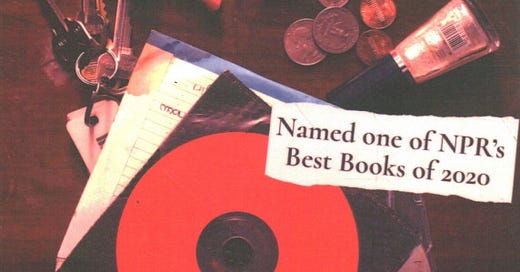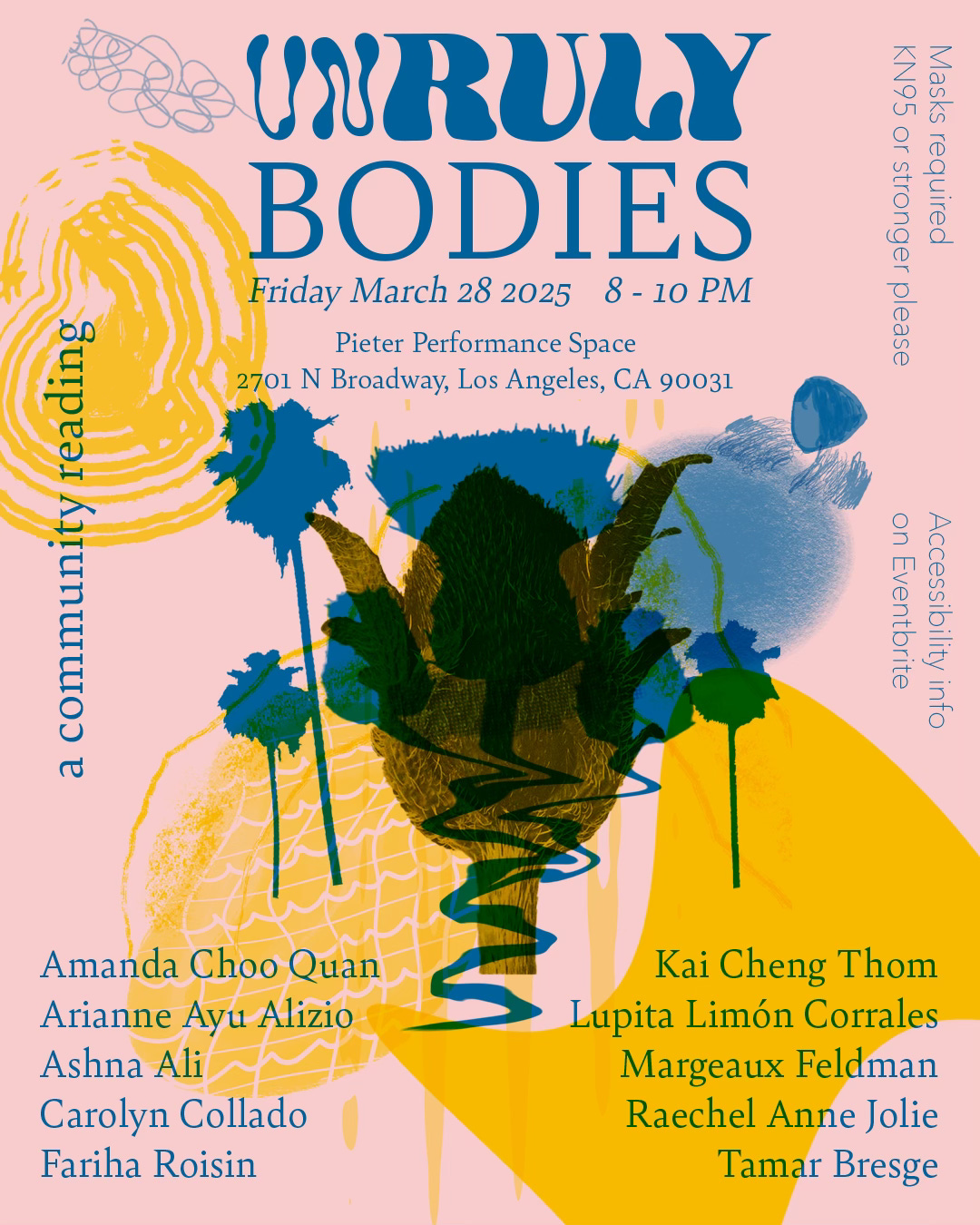RUST BELT FEMME, sweet birthday baaaby.
a reflection on five years of having a book in the world.
Greetings from LA! I am jet lagged and happy to be here for AWP and connecting with friends. One last reminder: you’re invited to join me and so many amazing writers at the Unruly Bodies reading on Friday March 28th at Pieter Performance Space. There are just a few tickets left for the in-person event, and a few more for folks who want to livestream remotely. Consider joining us!
****
My first (non-academic) book, Rust Belt Femme, was to be launched into the world at Moon Palace Books in Minneapolis on March 13th, 2020. On March 12th, 2020 I listened to an episode of How to Survive the End of the World and Maryse said “we take care of us means staying home.” I canceled my book party that day.
So RBF’s emergence was a quieter one, and Zoom-based. Still, it found its way into the hands of people who connected with the story from so many different vantage points: Midwesterners, millennial punks, daughters of single moms, folks who experienced poverty, femmes, and working-class PhDs. And some people just liked the writing. Cool. <3
In honor of her five year birthday, here are some insights I’ve gleaned and realities that have transpired in these five years of having a book in the world.
Send the email.
I’ve written before about the origin of writing Rust Belt Femme—how it was something I’d been wanting, but needed a palm reader in New Orleans to really push me to start writing it—but the way it got a contract was because I sent an email I was afraid to send. Most books will require an agent, but some independent presses accept direct submissions. With a lot of my encouragement from my then-partner, I sent an email length pitch. Within a day I got a response asking for a full proposal and some chapters. I had written about 15 pages at that point. I was elated though, and a few days later I responded with the requested materials.
I am not generally in advice/inspirational speaker mode in this newsletter (though I did have a short-lived advice column that I loved), but I will venture into it to say: send the email. Whether it’s to an indie press for a book or any other thing that your body is screaming for, the worst that happens is you get ignored. Nbd. But there could be times that you get a reply and it could legit change your life. It’s not an overstatement to say that RBF changed my life. That doesn’t mean everything is great now (not at all lol), but it created a monumental shift in how I moved through the world, and it was all because I sent the email.
It’s not fair, but once you have a book, you will likely be taken more seriously as a writer. (I hope you will still consider yourself a writer without one.)
It hurts my heart that I had trouble calling myself a writer before getting a book deal. I have been writing since I was capable of it, since my grandmother stapled together blank pieces of paper in book form, giving me a place to tell stories. I have been self-publishing since the Xanga and Livejournal days, made zines, wrote for my college newspaper, and then had years of getting my academic writing published in books and journals. But I still struggled—even in the years that I was between academic jobs, making money largely through writing—to call myself a writer. This is dumb, but the truth is that I didn’t have external validation of it, really, until the book was out. I’m sure there are plenty of writers for whom this is not the case—columnists, people who make 100% of their income from writing—-those who know they are a writer without anyone else having to say so. But for me, it shifted after the book.
A few things happen when you have a book that don’t happen as much if you don’t:
you get asked to write book blurbs. There’s a lot of discourse about blurbs, but I’ll say that I like them, it feels good to say nice things about your fellow writers.
you’ll be asked to give more talks, be on more podcasts, etc. I had a fair share of this through my academic work, but having the book out tripled the number of requests I got.
it simply gives you more opportunities. For example, I am doing something very cool in LA this week that would have been impossible without a book. (I am remaining cryptic about this because I don’t want to jinx it, but there will be another little hint about it below the paywall :)). And, as someone who will be seeking an agent soon, I know having a book will make me a safer candidate. There are also grants—like the NEA—that you can only apply for if you have a book. I’m grateful for all of these opportunities, but it’s also a reminder of the inequities of the creative/art world and that bums me out.
Given the above, having a book means developing as many solidaristic practices as possible.
Once you have the power of a book behind you, all those opportunities should be coupled with reaching a hand back for those who haven’t published one yet. It has been my pleasure (and, I believe, my responsibility) to give free advice, send emails to make connections, put in good words, blurb newcomers, share pitch calls, and so on.
Relatedly, a book is both an individual and collective process.
Book writing is lonely and isolating and also impossible to do without other people. From friends, family, and partners who are patient with your stress, to editors (mine was the skilled and thoughtful
) and press staff and marketers and freelance writers who interview you or review the book….Mycelial metaphors are very tired, but it’s true about the process: you will write and the words will be like little mushroom roots reaching under soil and connecting with entire webs of people, many of whom will likely end up as dear friends and collaborators. The connections with other people has been, without question, the best part of having a book in the world.
You will reach milestones beyond your wildest dreams, and then the bar will shift and you will feel small again.
Getting a book deal felt like I’d made it. Then getting a blurb from a hero like Michelle Tea felt like I’d made it. Then the book coming out felt like I’d made it. Then winning a couple awards and getting named in NPR’s Favorites of 2020 felt like I’d made it. In between these “holy shit!” moments I was back to anxiety and suddenly itchy for the next big thing. (Or, more accurately, itchy for one of these moments to come with any kind of material security. They never did.)
I have been committed to a spiritual practice long enough to know that this experience calls for turning inward. The relief won’t come with the next big thing, the relief will come when I stop grasping. I know the task is always to return to santosha. And also: some of these things should have material benefits! In the words of my friend Jessica Lawless, “Cultural capital doesn’t pay the rent.” (This is the title of her excellent forthcoming book, I’ll be sharing a pre-order link as soon as I get one.)
And speaking of material benefits….
Some thoughts on money and book publishing.
I want to give you some real numbers.
Keep reading with a 7-day free trial
Subscribe to radical love letters to keep reading this post and get 7 days of free access to the full post archives.




